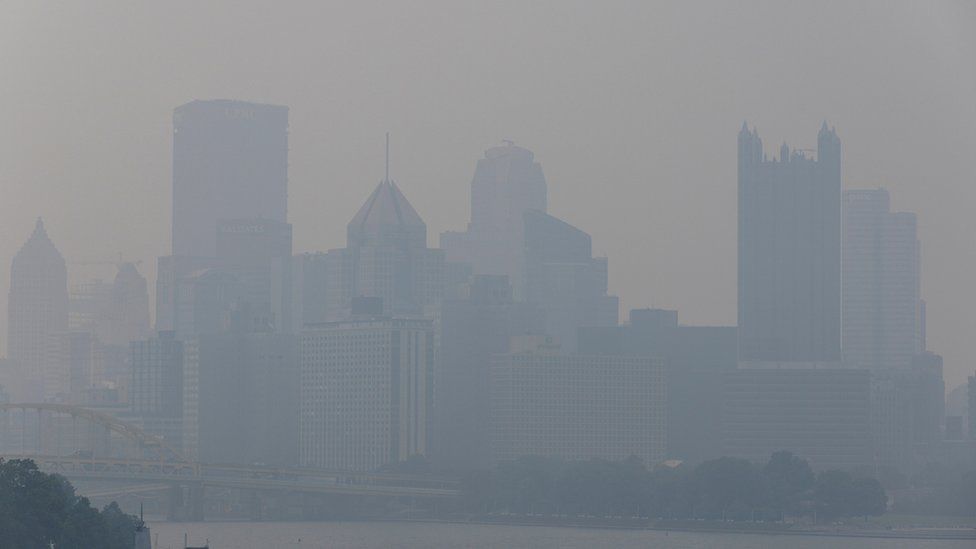As wildfires in Canada continue to burn out of control, millions of people awoke this week to hazy skies and dangerous air quality.
Researchers predict that this is not the first time that wildfire smoke has covered a significant portion of North America.
There will be a lengthy wildfire season, so scientists are urging more investigation into the dangers of repeated smoke exposure.
Scientists claim that the tiny aerosol particles known as PM2.5s are what you are seeing when you look through the hazy smoke.
While PM2.5 particles are smaller than viruses and can easily pass into your lungs like viruses, larger airborne particles like pollen can get trapped in your nose. .
According to Brett Palm, a researcher with the National Center for Atmospheric Research, "when they are breathed in, they are small enough that they can get... absorbed into your bloodstream and cause cardiovascular issues.". .
"They essentially react with your cells and create stress and inflammation inside your body. " .
Breathing problems, coughing, headaches, and exhaustion are a few symptoms that can occur. People with pre-existing respiratory issues like asthma and COPD as well as regular smokers are those who are most likely to be harmed by the smoke.
According to Mr. Palm, preliminary research suggests that as wildfire smoke is pushed downwind, sunlight may change the particle's composition, making it more toxic.
He claimed that wildfires are not constant. "In wildfires, a lot of chemical reactions take place, and the smoke's chemical makeup changes very quickly. ".
According to research, people who work in the fire service are more likely to develop cardiovascular and respiratory conditions because of their frequent exposure to smoke. In fact, research has shown that cardiovascular disease is the main killer of both career and volunteer firefighters.
Repeated exposure to wildfire smoke can also impair brain function and cause low birth weights and premature births in pregnant women, according to Colleen Reid, a researcher who focuses on wildfires and the effects of climate change on human health.
According to her, particles have even been discovered in the placenta in some exposure cases.
Even a small amount of exposure can result in dysfunction throughout the entire body, according to Yohannes Tesfaigzi, a professor of pulmonology at Harvard's Brigham and Women's Hospital.
"The cardiovascular system isn't functioning properly, not just the lungs anymore. It spreads throughout the body. " .
Even so, according to scientists, they still don't fully comprehend how wildfire smoke affects the general populace.
Because we have access to that information, Ms. Reid said that emergency department visits account for the majority of her team's knowledge of the health effects of wildfire smoke.
"We need to conduct more research to understand questions like: does the air pollution have to reach above a certain level for us to see more [side effects]? Does the air pollution need to be present for a specific number of days in order to have an effect? Or can what we say is just the higher the concentration?," she said.
According to Ms. Reid, the best way to reduce the effects of wildfire smoke is to limit time spent outdoors, including during exercise, and to take air quality warnings seriously.
If you wear an N95 mask with a tight seal, she said, they work really well to protect you.
You can use the air conditioner inside on recycle so that it tries to cool the interior air rather than bringing in outside air, she advised. It's also a good idea to have a HEPA filter in your house, which is a kind of pleated mechanical air filter.
It's important to combat climate change as well as learn how to protect ourselves.
It's a "both, and" at this point, she said, not "either or."







